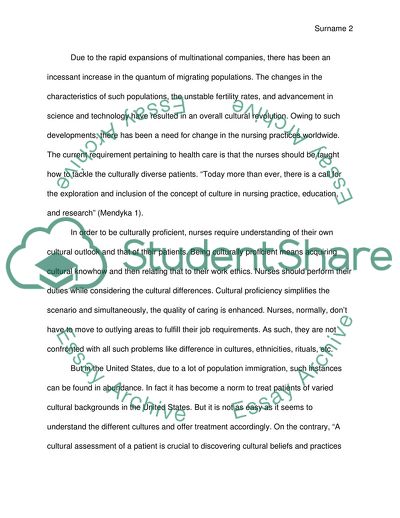Cite this document
(Transcultural nursing teaching/practice Essay Example | Topics and Well Written Essays - 2000 words, n.d.)
Transcultural nursing teaching/practice Essay Example | Topics and Well Written Essays - 2000 words. Retrieved from https://studentshare.org/nursing/1787761-transcultural-nursing-teachingpractice
Transcultural nursing teaching/practice Essay Example | Topics and Well Written Essays - 2000 words. Retrieved from https://studentshare.org/nursing/1787761-transcultural-nursing-teachingpractice
(Transcultural Nursing teaching/Practice Essay Example | Topics and Well Written Essays - 2000 Words)
Transcultural Nursing teaching/Practice Essay Example | Topics and Well Written Essays - 2000 Words. https://studentshare.org/nursing/1787761-transcultural-nursing-teachingpractice.
Transcultural Nursing teaching/Practice Essay Example | Topics and Well Written Essays - 2000 Words. https://studentshare.org/nursing/1787761-transcultural-nursing-teachingpractice.
“Transcultural Nursing teaching/Practice Essay Example | Topics and Well Written Essays - 2000 Words”. https://studentshare.org/nursing/1787761-transcultural-nursing-teachingpractice.


